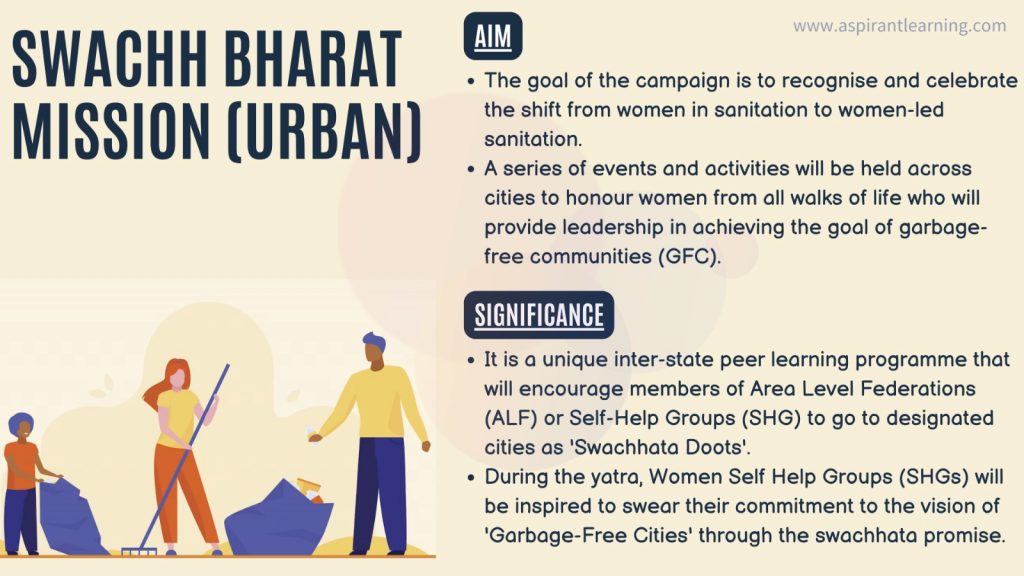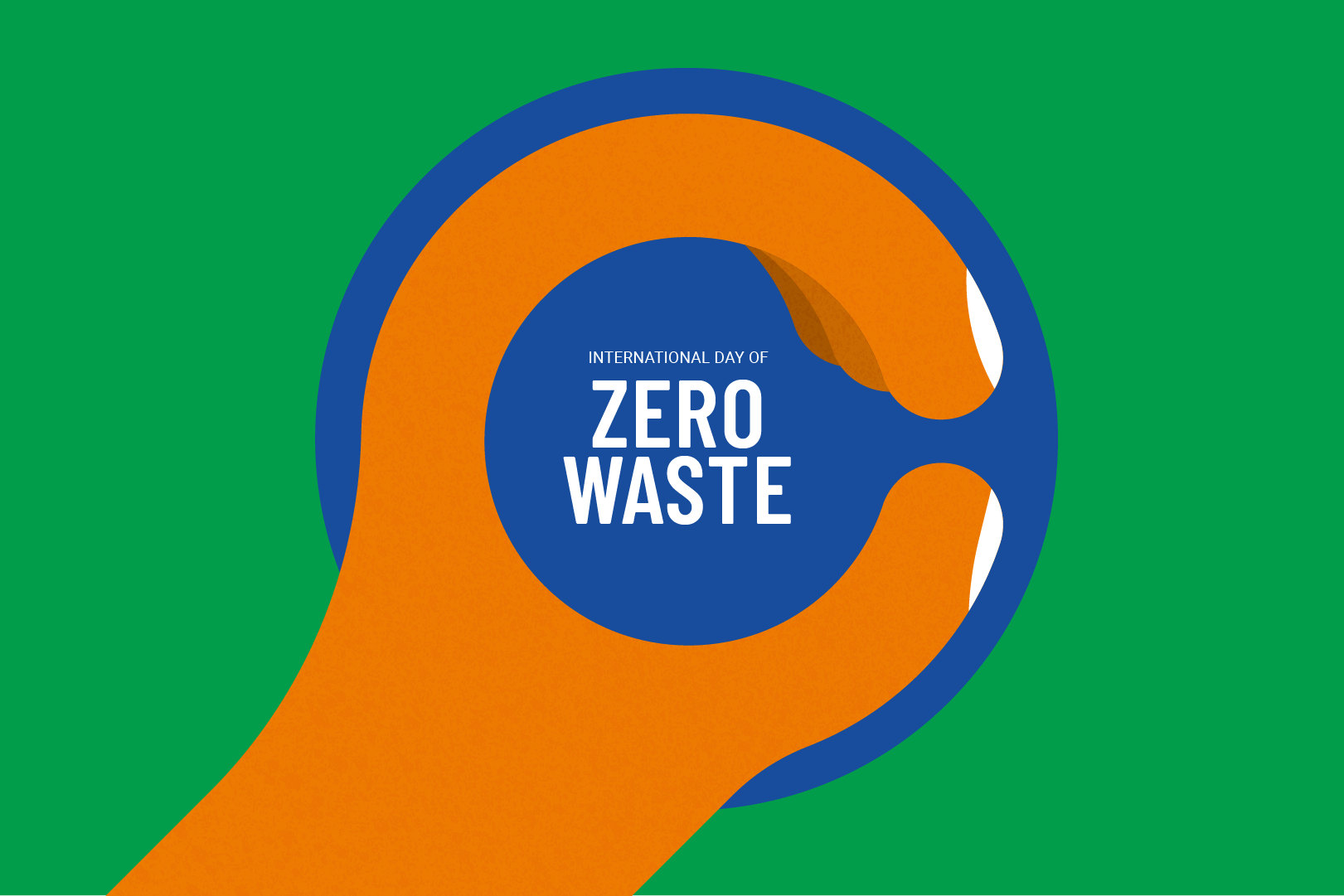News Highlight
Swachhotsav 2023- International Day of Zero Waste.
Key Takeaway
- The Swachh Bharat Mission – Urban (SBM-U) was the first large-scale programme to instil the Jan Bhagidari philosophy.
- The mission’s ownership and leadership by the people converted it from a government programme to a people’s programme.
- SBM-U was renamed Jan Andolan.
- The Minister praised the ‘Rally for Garbage-Free Cities,’ a women-led Jan Andolan.
- Lakhs of residents cleaned local streets, neighbourhoods, and parks.
International Day of Zero Waste
- About
- The day was founded by the United Nations Environment Programme (UNEP) and the United Nations Human Settlements Programme (UN-Habitat).
- It responds to the deterioration of waste’s effects on human health, the economy, and the environment.
- The day encourages all stakeholders to participate in activities that raise awareness of zero-waste programmes.
- It includes governments, civil society, corporations, academia, communities, women, and youth.
- Theme
- The theme for International Day of Zero Waste 2023 is ‘Achieving sustainable and environmentally sound practices of minimising and managing waste’.
- Significance
- The World Day of Zero Waste celebrated on March 30th, is significant.
- Because it emphasises the significance of waste reduction and promoting sustainable consumption and manufacturing habits.
- The day urges individuals to decrease waste by reusing and recycling things and reducing the waste generated.
- This day is an opportunity to raise awareness about the negative environmental effects of trash, such as landfills, pollution, and resource depletion.
- It also intends to advance Sustainable Development Goals 11 and 12 to promote the 2030 Agenda for Sustainable Development.
- Its goal is to make cities and communities more sustainable while encouraging responsible consumption and production.
Action at every level is necessary to achieve zero waste
- Producer
- Things should be long-lasting and made of low-impact materials.
- Manufacturers can minimise pollution and waste by employing less resource-intensive production and distribution methods.
- Zero waste across a product’s life cycle can also be achieved through advertising and careful demand management.
- Consumer
- Consumers can help ensure zero waste by adopting new behaviours and reusing and mending items as much as possible before properly discarding them.
- Combined effort
- Increasing waste management and improving recovery systems through financing and law is becoming increasingly crucial for governments, communities, and businesses.
- Furthermore, other stakeholders have become more aware of the potential of zero-waste programmes.
- The Global Strategy for Sustainable Consumption and Production can help with this shift.
India’s initiatives in Waste management
- As part of its commitment to effective waste and pollution management in India, the Government of India has launched several large-scale national projects.
- It includes the “Swachh Bharat Mission,” the “National Water Mission,” and the “Waste to Wealth Mission.”
- The Solid Waste Management (SWM) Regulations 2016, Plastic Waste Management (PWM) Rules, 2016 and E-waste (Management) Rules, 2016 have been notified to promote.
- As well as supports the goals of the Swachh Bharat Unnat Bharat Abhiyan.
- The Prime Minister will launch Asia’s largest municipal solid waste-based GOBARdhan facility in Indore in February 2022.
- It aims to produce 19,000-kilogramme bio-CNG gas.
- The bio-methanation plants attached to the GOBARdhan and SATAT projects.
- It would create Bio-CNG as renewable energy under the Swachh Bharat Mission-Urban 2.0.

Pic Courtesy: UNEP
Content Source: PIB



